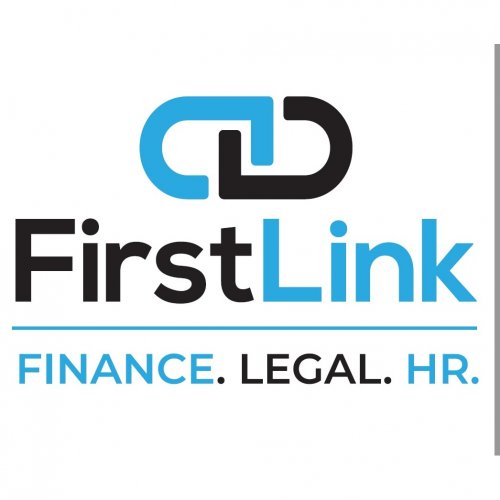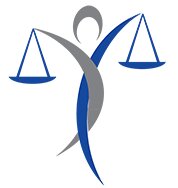Best Communications & Media Law Lawyers in Trinidad and Tobago
Share your needs with us, get contacted by law firms.
Free. Takes 2 min.
Or refine your search by selecting a city:
List of the best lawyers in Trinidad and Tobago
About Communications & Media Law in Trinidad and Tobago
Communications & Media Law in Trinidad and Tobago encompasses the regulations and legal matters related to broadcasting, telecommunications, internet services, advertising, and the press. This area of law ensures that media operations function fairly and transparently and that communications systems operate without content that violates community standards or infringes on individual rights. In Trinidad and Tobago, the framework is designed to balance freedom of expression with public interest, privacy, and the maintenance of ethical standards in media practices.
Why You May Need a Lawyer
There are various scenarios where individuals or organizations might require legal assistance in Communications & Media Law:
- Defamation: If you've been accused of defamation or are seeking to bring a defamation claim against someone, legal advice can be crucial.
- Privacy Concerns: With increasing digital data usage, privacy laws addressing the protection of personal data can be complex.
- Licensing and Regulation: Media companies need to navigate the licensing requirements and compliance issues related to broadcasting and telecommunications.
- Intellectual Property Rights: Disputes involving copyright, trademarks, or other intellectual property aspects of media content may require legal input.
- Advertising Laws: Compliance with advertising laws to prevent misleading or inappropriate advertising content can be vital for businesses.
Local Laws Overview
Some key legislations and regulations relevant to Communications & Media Law in Trinidad and Tobago include:
- The Telecommunications Act: This Act governs the telecommunications services and seeks to promote and ensure fair competition.
- The Broadcasting Code: Provides guidelines for broadcasters to ensure content meets ethical standards and respects community sensitivities.
- The Data Protection Act: Protects personal data privacy by regulating the collection, storage, and use of personal data.
- The Copyright Act: Handles issues related to the protection of creative works and intellectual property rights.
- The Defamation Act: Provides the legal framework for addressing defamation and defending against such claims.
Frequently Asked Questions
What is the role of the Telecommunications Authority in Trinidad and Tobago?
The Telecommunications Authority regulates the telecommunications and broadcasting sectors, ensuring service providers operate in a competitive and equitable environment.
How can I protect my online privacy in Trinidad and Tobago?
The Data Protection Act sets guidelines on how personal information must be collected, processed, and stored, offering protection and recourse in case of data misuse.
What constitutes defamation under Trinidadian law?
Defamation involves making false statements about someone that harms their reputation. The law requires proving that the statement was defamatory, published, and referred to the plaintiff.
How is freedom of the press protected in Trinidad and Tobago?
Freedom of the press is protected under the Constitution but balanced against laws regulating defamation, privacy, and state security issues.
What are the consequences of broadcasting without a license?
Operating a broadcast service without a valid license can result in significant fines, legal actions, and the possible shutdown of the broadcast service.
Can foreign media operate in Trinidad and Tobago?
Yes, but they must comply with local regulations, obtain necessary licenses, and sometimes partner with local entities for certain types of operations.
How are intellectual property rights protected?
Intellectual property rights are protected under the Copyright Act, which offers remedies in cases of unauthorized use or reproduction of creative works.
What steps can be taken against misleading advertising?
Consumers can report misleading advertisements to the Fair Trading Commission or seek legal remedies if they suffer damages as a result of false advertisement claims.
How are media ethics enforced?
Media ethics are primarily enforced through the Broadcasting Code, which provides guidelines on acceptable content and the ethical responsibilities of broadcasters.
What should I do if I believe my communications are being intercepted unlawfully?
You should seek legal advice immediately, as such actions might contravene laws protecting privacy and communications, like those under the Data Protection Act.
Additional Resources
Below are resources and organizations that might be of assistance:
- Telecommunications Authority of Trinidad and Tobago (TATT): Regulates telecommunications and broadcasting services.
- Fair Trading Commission (FTC): Handles issues related to fair dealing and consumer protection.
- Trinidad and Tobago Publishers and Broadcasters Association (TTPBA): Provides advocacy and support for media professionals.
- Intellectual Property Office of Trinidad and Tobago: Offers resources on protecting intellectual property rights.
Next Steps
If you need legal assistance in Communications & Media Law, consider taking the following steps:
- Consult a Lawyer: Seek out a lawyer specialized in Communications & Media Law to guide you on specific issues.
- Gather Documentation: Organize any relevant documents or communications relating to your issue for a detailed consultation.
- Research: Inform yourself about your particular issue by referring to legal texts or online resources to gain a preliminary understanding.
- Contact Relevant Authorities: Approach regulatory bodies if your issue involves specific legal compliance or grievances.
By taking these actions, you can better prepare yourself to navigate the complexities of Communications & Media Law in Trinidad and Tobago effectively.
Lawzana helps you find the best lawyers and law firms in Trinidad and Tobago through a curated and pre-screened list of qualified legal professionals. Our platform offers rankings and detailed profiles of attorneys and law firms, allowing you to compare based on practice areas, including Communications & Media Law, experience, and client feedback.
Each profile includes a description of the firm's areas of practice, client reviews, team members and partners, year of establishment, spoken languages, office locations, contact information, social media presence, and any published articles or resources. Most firms on our platform speak English and are experienced in both local and international legal matters.
Get a quote from top-rated law firms in Trinidad and Tobago — quickly, securely, and without unnecessary hassle.
Disclaimer:
The information provided on this page is for general informational purposes only and does not constitute legal advice. While we strive to ensure the accuracy and relevance of the content, legal information may change over time, and interpretations of the law can vary. You should always consult with a qualified legal professional for advice specific to your situation.
We disclaim all liability for actions taken or not taken based on the content of this page. If you believe any information is incorrect or outdated, please contact us, and we will review and update it where appropriate.
Browse communications & media law law firms by city in Trinidad and Tobago
Refine your search by selecting a city.
















